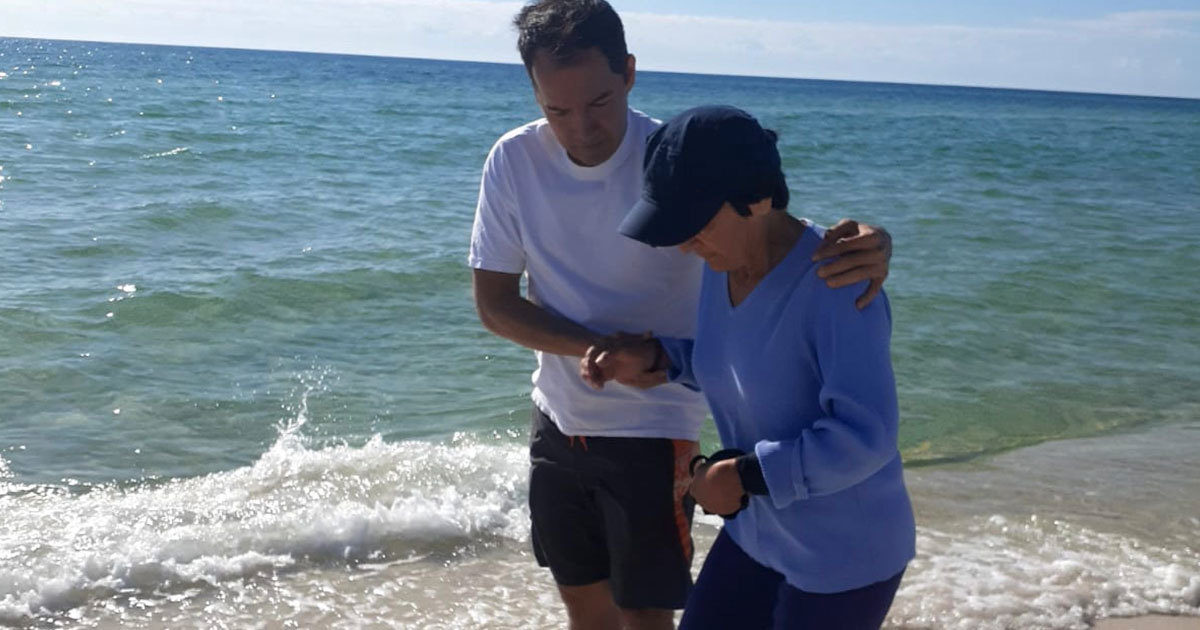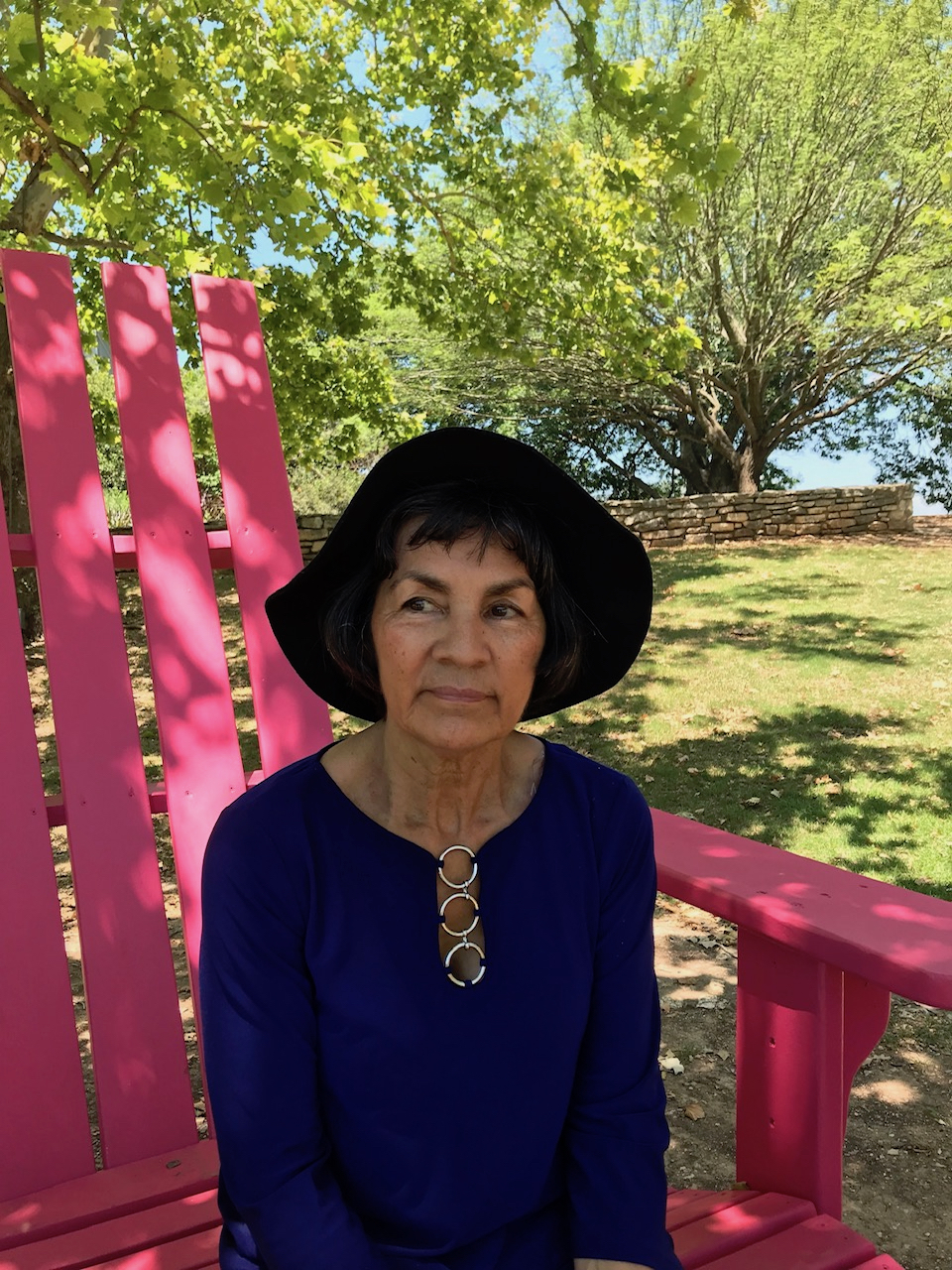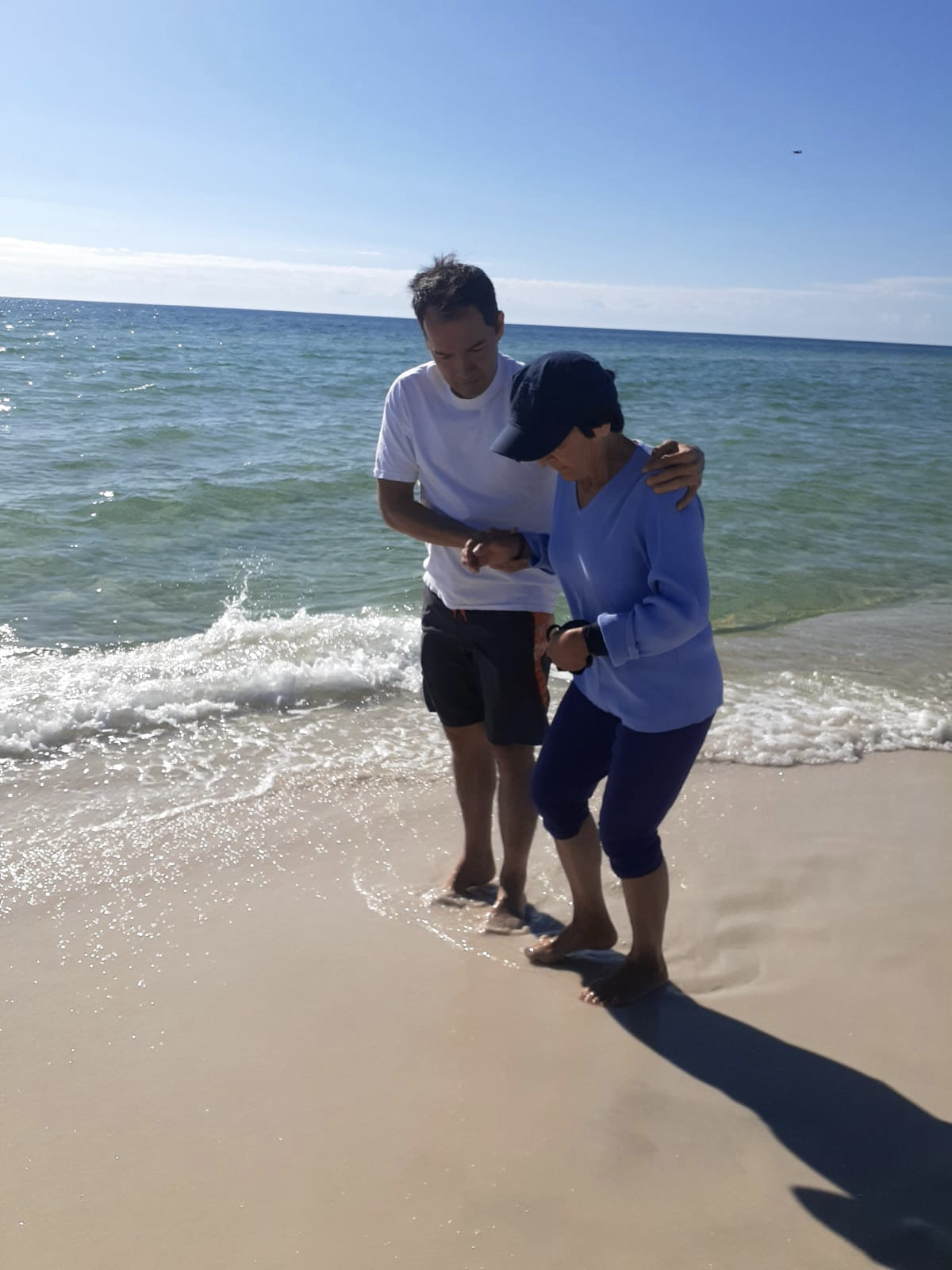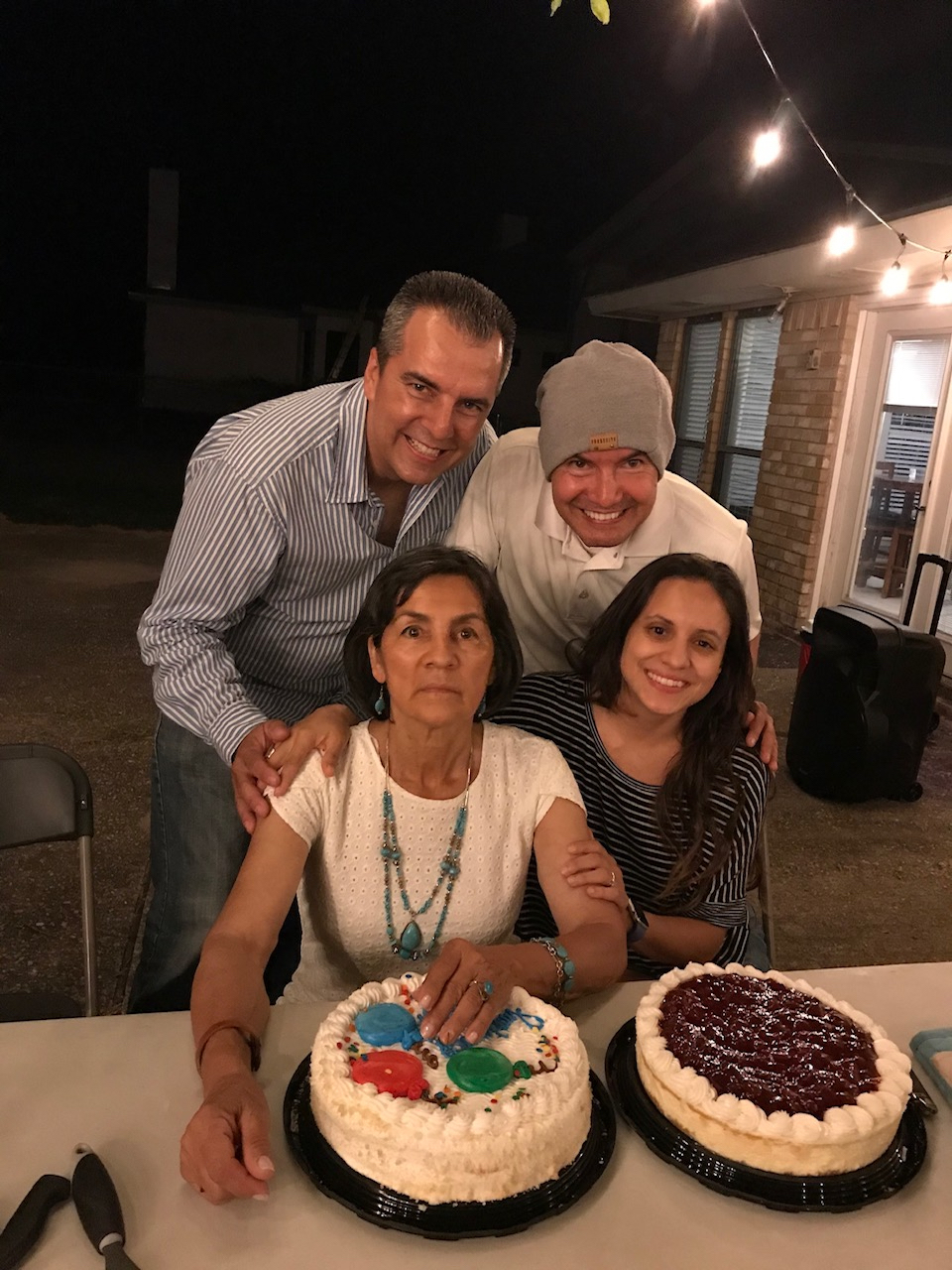Eliminating Barriers in Health Care Even When Faced With Unforeseen Challenges
How UT Health Austin was able to coordinate a patient’s care entirely through telehealth to reduce the patient’s exposure to COVID-19 and risk of further injury
Reviewed by: Joslin (patient's caregiver), and David Ring, MD, PhD
Written by: Lauryn Gerard

As a registered nurse living in San Antonio, Texas, Joslin has the clinical expertise and lives within a close enough proximity to step in as a caregiver when needed for her 69-year-old mother, who is currently living in Austin with Joslin’s brother and sister-in-law. However, as we know, caregiving can be both rewarding and stressful at the same time, especially as caregivers are forced to take extra precaution to protect the health and safety of their loved ones as we continue to navigate the ongoing COVID-19 pandemic.
Joslin’s mother, Mary, has corticobasal degeneration (CBD), a rare progressive neurological disorder characterized by cell loss and deterioration of specific areas of the brain. This type of degeneration causes difficulty with movement, and patients often experience poor coordination, problems with balance, stiffness, difficulty thinking clearly, trouble with speech or language, and more. Because of this condition, Mary has developed left hemiplegia, meaning she is unable to use her left arm, making daily tasks even more difficult.

Mary is currently receiving ongoing care from adult health clinical nurse specialist Holly Cross, MSN, APRN, ACNS-BC, ACHPN, in UT Health Austin’s Comprehensive Memory Center within the Mulva Clinic for the Neurosciences to manage her condition and associated symptoms. The Comprehensive Memory Center recognizes that both the patient and their caregivers are valuable members of the patient’s care team, which is why the patient and caregivers are involved in all aspects of the patient’s care. As such, caregiver support services are also available through the Comprehensive Memory Center to help families similar to Joslin’s manage their loved ones’ symptoms.
Due to the current pandemic, many of Mary’s in-person appointments with UT Health Austin have been transitioned to virtual appointments. Many of the same services that are offered in-person are available through a secure video conferencing platform, allowing healthcare providers to evaluate, diagnose, and treat patients at a distance while the patient remains able to visit with their provider face-to-face. Telehealth helps reduce exposure to COVID-19 for both patients and providers while ensuring patients who need acute or ongoing medical care are still receiving high-quality patient-centered care. Additionally, telehealth provides a more convenient care model for loved ones, such as Joslin, who want to be involved in the patient’s care.
“The telehealth option at UT Health Austin has provided our family some relief when it comes to getting care for our mom,” says Joslin. “And since I live in San Antonio, telehealth also allows me to be a part of my mother’s care from a distance. The entire experience has been fantastic and seems well coordinated.”

But, as we all know, 2020 was the year of endless challenges, and in October 2020, Mary suffered a fall while walking up their stairs at home that resulted in a fracture in her right elbow, affecting her only functioning arm. Joslin returned to Austin to help care for her mom, taking her to her local primary care provider in Round Rock, where she was immediately referred to an orthopedic specialist. With her familiarity with the multidisciplinary care model at UT Health Austin, in which specialists across the UT Health Austin clinics work together to create individualized care plans for patients, Joslin said it felt natural to continue Mary’s care within the UT Health Austin system.
“We made an appointment with Dr. Ring and he was able to coordinate my mother’s care entirely through telehealth. We didn’t have to drive into downtown Austin, and we were able to get an x-ray at an imaging location just five minutes away from the house,” says Joslin.
David Ring, MD, PhD is a board-certified orthopedic surgeon and serves as the Upper Extremity Clinical Director for UT Health Austin’s Musculoskeletal Institute. Knowing the type of fracture Mary suffered from is notorious for not healing, Dr. Ring recognized the importance of coordinating Mary’s care in a way that minimized her risk of re-injury. Dr. Ring was able to work directly with Joslin as Mary’s caregiver to coordinate occupational therapy that was delivered virtually as well as other care needs to ensure Mary’s elbow healed without complication.

Because of Mary’s injury, her independence drastically decreased, causing her to regress in overall brain function, which worsened the symptoms caused by her CBD. However, as of December 2020, Joslin reported that Mary’s elbow is healing well, and she is slowly regaining her independence and ability to participate in daily activities that help increase brain function.
“Due to my mother’s neurological condition, an injury like this can make her case particularly difficult, but I’m so grateful for the providers we work with at UT Health Austin who have made her care as smooth as possible this year. The care team listens, the appointments are easy to set up, and I really appreciate the holistic approach they bring to patient care,” says Joslin.
As the healthcare environment continues to adapt to ongoing changes due to the COVID-19 pandemic, UT Health Austin remains dedicated to delivering high-quality patient care while working with you and your family to provide the personalized care that you need, when and where you need it.
To learn more about the UT Health Austin Comprehensive Memory Center, visit here.
To learn more about the UT Health Austin Musculoskeletal Institute, visit here.
To make an appointment with a UT Health Austin clinic, call 1-833-UT-CARES (1-833-882-2737) or visit here.